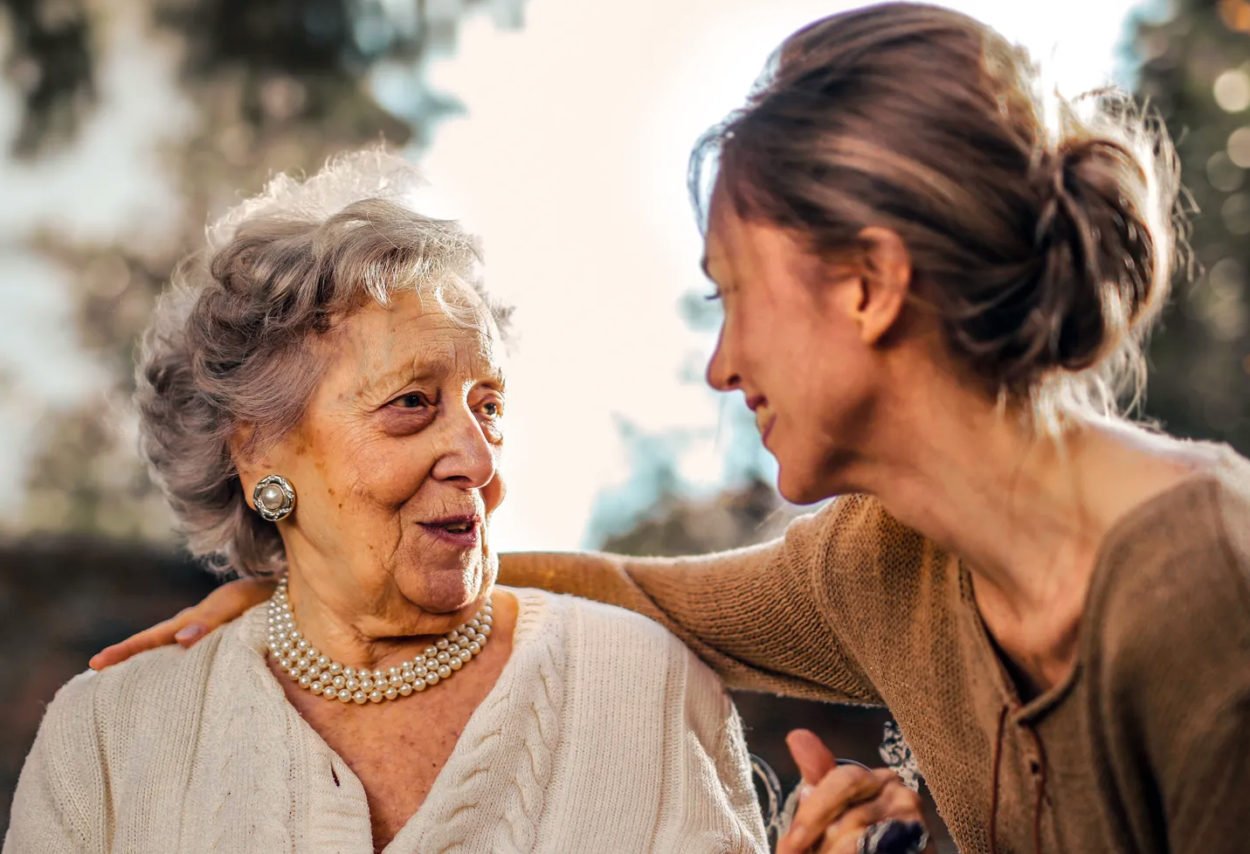Supporting Caregivers During Alzheimer’s and Brain Awareness Month
Written by: Emma Driban, JFS Content Developer
In Delaware alone, there is an estimated 19,000 residents aged 65 and older currently living with dementia, according to the Alzheimer’s Association 2021 Alzheimer’s Disease Facts and Figures. While that number is significant, it does not convey the number of people who are impacted by dementia or Alzheimer’s Disease. When a family member is diagnosed with Alzheimer’s disease or other dementia, the diagnosis can have an overwhelming effect on the entire family. Between processing new medical needs and the rapid changes occurring in the person who has been diagnosed, it can be hard to navigate many of the necessary decisions about treatment, finances, living arrangements, and care.
“Alzheimer’s disease is life changing—not only for the person living with the disease but for family and friends as well,” says Katie Macklin, Senior Director of Advocacy for the Alzheimer’s Association Delaware Valley Chapter. “It is important for caregivers and those living with the disease to have an understanding of what to expect as the disease progresses, the best ways to deal with its many challenges, and for them to know that there is support available.”
Providing support for individuals with dementia as well as their caregivers and family members is a critical part of helping families manage dementia-related diagnoses. Where some support systems might focus more heavily on the medical aspects, an interdisciplinary, social services model emphasizes the importance of guiding families as they face the challenges of caring for a family member with dementia, understanding and honoring individual values and preferences, and addressing new concerns and issues as they arise throughout the course of the disease.
“[Alzheimer’s is a disease] where you’re talking about the patient going through a pretty intense evolution in terms of their neurological capabilities and their physical capabilities, which affect them on all levels—physically, mentally, emotionally.” Natalie Reese, a caregiver participating in JFS’ dementia care program explains, “caregivers are the ones bearing witness to that experience day in and day out . . . You have to learn to hold space for it.”
 According to the Alzheimer’s Impact Movement (AIM), over one in three dementia caregivers say their health has gotten worse due to their care responsibilities and nearly 60% of Alzheimer’s and dementia caregivers rate the emotional stress of caregiving as high or very high, with 40% of family caregivers reporting they suffer from depression.
According to the Alzheimer’s Impact Movement (AIM), over one in three dementia caregivers say their health has gotten worse due to their care responsibilities and nearly 60% of Alzheimer’s and dementia caregivers rate the emotional stress of caregiving as high or very high, with 40% of family caregivers reporting they suffer from depression.
“Whenever facing difficult times, having a good support network for advice and encouragement may help you feel socially connected and give you a sense of belonging and purpose,” says Macklin. “The Alzheimer’s Association is excited to partner with JFS to raise awareness, to support individuals living with dementia and their caregivers, and to work together to lift up the needs of Delaware’s Alzheimer’s and dementia community.”
The most successful programs offer comprehensive support and resources as participants contend with the changing needs of the diagnosed individual, in terms of both medical and social needs. A medical-social approach assists participants in different areas of need, ensuring a more well-rounded network of support is formed.
Reese elaborates, “the structure of the JFS COMPASS program really feels like concentric circles that build out from the patient—so there’s the patient, the caregivers, and JFS wraps around that in a really supportive fashion. The fundamental structure is very different; it operates on a social services model instead of a medical model, which means it is really tied to wellbeing and the overall health of the patient and the caregivers.”
It is important for people facing a new diagnosis and their family members to remember that they are not alone. It can be challenging to find the right path, but with quality, local programs and organizations, support networks are available and ready to step in and offer a helping hand.
JFS COMPASS is a consultative program, led by a geriatrician and interdisciplinary team, providing medical care for individuals with dementia and critical social supports to caregivers. COMPASS was recently awarded the Network of Jewish Human Service Agency’s 2021 Pillar of Excellence Award for Innovation.
For more information about the Alzheimer’s Association, please visit ALZ.org or call their 24/7 Helpline at 800-272-3900.

